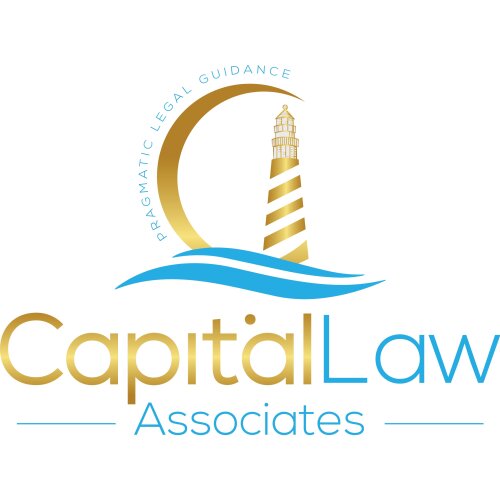Best Debt & Collection Lawyers in Bahamas
Share your needs with us, get contacted by law firms.
Free. Takes 2 min.
Or refine your search by selecting a city:
List of the best lawyers in Bahamas
About Debt & Collection Law in Bahamas
Debt and collection laws in the Bahamas govern the relationships and procedures related to borrowing and lending, including mechanisms for creditors to collect debts while ensuring that debtors are protected from unlawful or unfair practices. These laws are designed to promote fairness and transparency in financial transactions and provide remedies for both parties involved. The Bahamas follows a legal framework influenced by both its own legislative environment and common law principles, addressing issues such as debt enforcement, dispute resolution, and the rights and responsibilities of debtors and creditors.
Why You May Need a Lawyer
In the Bahamas, individuals and businesses may require legal assistance in debt and collection for various reasons:
- Disputes over debt amounts, interest rates, or terms.
- Facing aggressive or unlawful debt collection practices.
- Negotiating debt settlements or refinancing agreements.
- Understanding and handling bankruptcy proceedings.
- Assistance with creating and enforcing loan agreements.
- Representation in court for debt-related lawsuits.
- Protecting assets from being seized or garnished.
Local Laws Overview
The debt and collection legal framework in the Bahamas encompasses several important elements:
- Commercial Entities (Substance Requirements) Act: This act affects creditors by setting forth registration and reporting requirements for entities operating within the Bahamas, impacting their collection rights.
- Consumer Protection Act: Protects consumers from unfair debt collection practices, providing remedies and protecting their rights.
- Bankruptcy Act: Details the process and implications of debtors declaring bankruptcy, including how debts are managed and discharged.
- Contract Law: Outlines the legal principles of creating and enforcing loan agreements between parties.
- Limitation Act: Establishes time limits within which creditors can take actions to recover debts, thereby avoiding stagnant claims.
Frequently Asked Questions
What is the process for debt collection in the Bahamas?
Debt collection typically involves a series of steps including contacting the debtor to arrange payments, using a collection agency, and potentially pursuing legal action in court if necessary.
How can I dispute a debt in the Bahamas?
Dispute a debt by formally contesting it in writing to the creditor or collection agency, providing any supporting documentation and, if unresolved, seeking legal advice to challenge the claim in court.
What are my rights if a collection agency contacts me?
Under the Consumer Protection Act, you have the right to be treated fairly and not harassed, with collection agencies required to provide clear information about the debt and cease contact if instructed.
How long does a creditor have to collect a debt?
The Limitation Act usually allows creditors a period of six years to collect a debt in the Bahamas, after which they may be barred from enforcing collection through the courts.
What should I do if I'm facing bankruptcy?
If bankruptcy is a possibility, consult a lawyer who can guide you through the process and discuss alternatives, such as restructuring debts or negotiating settlements.
Can a creditor seize my assets for unpaid debts?
Asset seizure is typically a last resort, requiring a court order, though certain personal property may be exempt from being taken to satisfy debts.
How can I stop wage garnishments?
To stop wage garnishments, you may challenge them legally if they are improperly done or negotiate with creditors to possibly pay the debt in another manner.
What should I do if I receive a court summons for a debt?
Respond promptly by seeking legal advice and preparing for the court proceedings; ignoring a summons can lead to default judgment against you.
Is it possible to negotiate my debt amount or terms?
Many creditors are open to negotiation, particularly if you demonstrate genuine financial hardship, so negotiating can lead to reduced payments or extended terms.
What are the consequences of not paying my debts?
Consequences may include damaged credit ratings, legal actions, asset seizures, and wage garnishments, making it important to proactively manage and address debts.
Additional Resources
For further assistance, consider contacting the following resources and organizations:
- Consumer Protection Commission: Offers guidance and assistance to consumers on their rights and protections.
- Registrar General's Department: Manages the registration of legal documents related to debt and bankruptcy cases.
- Bahamas Bar Association: Provides access to a list of qualified legal professionals who can offer debt-related legal advice.
- Central Bank of the Bahamas: Provides reports and statistics on financial matters including loans and credit.
Next Steps
If you require legal assistance for debt and collection issues in the Bahamas, take the following steps:
- Conduct research on your specific issue to understand your position better.
- Consult with a legal professional who specializes in debt and collection law to get tailored advice.
- Gather all relevant documents and records related to the debt for legal consultations.
- Explore alternative resolution methods, such as mediation or arbitration, if suitable.
- Remain actively engaged and proactive in resolving your debt matters to avoid further complications.
Lawzana helps you find the best lawyers and law firms in Bahamas through a curated and pre-screened list of qualified legal professionals. Our platform offers rankings and detailed profiles of attorneys and law firms, allowing you to compare based on practice areas, including Debt & Collection, experience, and client feedback.
Each profile includes a description of the firm's areas of practice, client reviews, team members and partners, year of establishment, spoken languages, office locations, contact information, social media presence, and any published articles or resources. Most firms on our platform speak English and are experienced in both local and international legal matters.
Get a quote from top-rated law firms in Bahamas — quickly, securely, and without unnecessary hassle.
Disclaimer:
The information provided on this page is for general informational purposes only and does not constitute legal advice. While we strive to ensure the accuracy and relevance of the content, legal information may change over time, and interpretations of the law can vary. You should always consult with a qualified legal professional for advice specific to your situation.
We disclaim all liability for actions taken or not taken based on the content of this page. If you believe any information is incorrect or outdated, please contact us, and we will review and update it where appropriate.
Browse debt & collection law firms by city in Bahamas
Refine your search by selecting a city.










